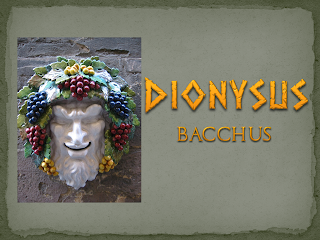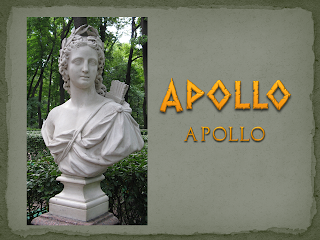Now, about nine months later, here she was holding a newborn baby in her arms! To thank God for hearing her prayer, she named the boy “God Has Heard”:
שְׁמוּאֵל
In Hebrew, “God has heard” is שְׁמוּאֵל (Shmuel), which sounds something like “Samuel.” He was a healthy baby boy, and Hannah was very thankful for this precious gift God had given her. She remembered her promise she had made to God, but she knew it wouldn’t be a good idea to take him to the tabernacle right away. It’s kinda hard for a priest to nurse a newborn baby. So when he was little, Hannah kept her new son at home and nursed him.
When Samuel was old enough, Hannah and her husband Elkanah took their son to the tabernacle. Hannah found Eli and said, “Remember a few years ago, when you saw me crying in the tabernacle, and you thought I was drunk? I told you I was very sad that God hadn’t given me any children, and I prayed for a son. Guess what! Here he is! I promised that when he was old enough, I would give him to God’s service, and now I’ve come to do what I promised I would do. For as long as he lives, he will be God’s servant.”
Then Hannah prayed. She told God, “You make me happy, and there is no God like you. You keep us safe, and You give things to people who are low and shame the people who brag. You bring down the strong, but you give strength to the weak. You give and take life. You make people rich or poor. You lift the homeless out of the dump and give them places of honor. You protect people who are loyal to You, but evil people will die in darkness. We can only win victories with Your help. Anyone who attacks You will be destroyed. You will judge the earth and give power to Your chosen king.”
After Hannah had prayed and they had said their goodbyes, Elkanah and Hannah went home, and they left Samuel to grow up in the tabernacle, under the able care of Eli. So Eli started to teach this young boy the way of God and had him do chores and lessons in the tabernacle. Eli was getting old, and he wasn’t in very good shape. In fact, he was a bit on the heavy side. So it was nice to have a young child around to help him out.
But Eli had a big problem. His sons Hophni and Phinehas were also priests, and they had a very bad habit. People would bring animals to the tabernacle to sacrifice to God, and they stole some of the meat for themselves! They sometimes didn’t even let people do the sacrifices right. God got very angry with Eli’s sons for the terrible and selfish thing they were doing.
As Samuel was growing up, his mother Hannah visited him regularly, and she would bring him clothes she had made for him. Every year, Eli would tell Hannah and Elkanah, “God gave you Samuel in answer to your prayers. I pray that God will give you more children to take his place.” God answered Eli’s prayer and gave Hannah three more sons and two daughters.
Eli was getting a lot of complaints about his sons’ behavior. Finally he had had enough with their shenanigans, and he went to them and said, “What are you thinking? Stop this horrible behavior! Hurting a person is one thing – you can always make up for it. But when you commit a crime against God, you’re playing with fire.” But they were so rebellious that they didn’t listen to their dad. And he let them keep stealing from God.
So God sent a prophet to Eli, who warned him that God had decided to put an end to Eli’s family. The prophet warned him that nobody in his family would live to an old age, and his family’s life would be sad. Someday soon his sons Hophni and Phinehas would both die on the same day, and God would raise up a new priest who would not be related to them, and who would help God’s chosen king.
By this time, Eli was nearly blind. God hardly ever spoke to people so they could actually hear Him. (That’s the same today. I’ve never heard God’s voice with my ears. I have to listen in other ways.)
One night, Samuel was sleeping on a mat in the tabernacle near the Ark of the Covenant, God's holy chest, when he heard a voice. "!שְׁמוּאֵל" (“Samuel!”)
He ran to Eli and said, “I’m here! What do you want?”
But Eli said, “I didn’t call you. Go back to bed.” So Samuel obeyed.
A little later, he heard it again. “Samuel!”
So he got up and went to Eli again. “Here I am! What do you want?”
Again, Eli said, “I didn’t call you. Go back to sleep.”
Now Samuel was starting to realize that he didn’t recognize this voice. It didn’t quite sound like Eli’s voice, but there was nobody else around that it could be. So when he heard his name again, he went to Eli and asked what he wanted.
Then Eli realized what was happening. So he told Samuel, “If you hear someone call your name again, stay in bed and say, ‘I’m listening, Lord. What do you want me to do?’”
So Samuel went back to bed. Pretty soon, he heard it again. “Samuel! Samuel!”
This time, he stayed in bed. “I’m listening,” he said. “What do You want me to do?”
So God said, “Samuel, something is about to happen that will shock everyone. Eli and his family will be punished for his sons’ behavior. Eli knew his sons were doing some terrible things, and he let them get away with it. I warned him about this, but he didn’t listen to how serious it was. His family has done too many disgusting things.”
Next morning, Samuel got up and opened the doors to the tabernacle. He was scared to tell Eli what he had heard. How would you feel if you had just heard that the people you love who raised you were in big trouble, and then they asked you about what you had heard?
The first thing Eli said in the morning when he saw Samuel was, “Samuel, my boy, come here!”
“Here I am,” Samuel said.
“What did God say to you?” Eli asked. “Tell me everything.”
So reluctantly, Samuel told Eli everything. Eli replied, “He is God. He will do what’s right.”
Samuel continued to grow up, and God blessed him. Everything Samuel said came true, and he earned a reputation for being God’s prophet.
As for Eli’s family, his sons Hophni and Phinehas were killed in battle by their enemies the Philistines. The Philistines also captured the Ark of the Covenant. When Eli found out that both his sons had been killed and the Ark was gone, the shock was too much for him. He fell backwards in his chair. He broke his neck in the fall and couldn’t get up. If he had lived a little longer, he could have met his new grandson. Phinehas’ wife was so upset about her husband’s death and the capture of the Ark that she named her son “No Glory”, or Ichabod.
What happened to the Ark? The Philistines put it in their temple to their god Dagon. Next morning, they discovered the statue of Dagon had fallen over! So they put it back. The following morning, they discovered the statue had not only fallen over, but had broken into several pieces! The Philistines could tell they had made Israel’s God very angry, and they sent the Ark back.
I wrote "Samuel" (Shmuel) on the whiteboard in Hebrew.


































